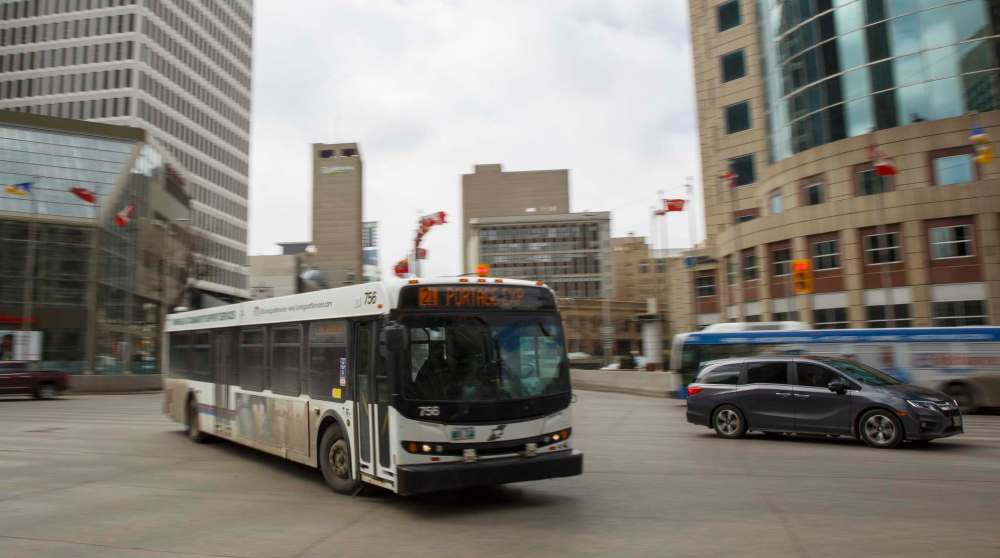Transit delivers report on potential special constable program
Advertisement
Read this article for free:
or
Already have an account? Log in here »
To continue reading, please subscribe:
Monthly Digital Subscription
$1 per week for 24 weeks*
- Enjoy unlimited reading on winnipegfreepress.com
- Read the E-Edition, our digital replica newspaper
- Access News Break, our award-winning app
- Play interactive puzzles
*Billed as $4.00 plus GST every four weeks. After 24 weeks, price increases to the regular rate of $19.95 plus GST every four weeks. Offer available to new and qualified returning subscribers only. Cancel any time.
Monthly Digital Subscription
$4.99/week*
- Enjoy unlimited reading on winnipegfreepress.com
- Read the E-Edition, our digital replica newspaper
- Access News Break, our award-winning app
- Play interactive puzzles
*Billed as $19.95 plus GST every four weeks. Cancel any time.
To continue reading, please subscribe:
Add Free Press access to your Brandon Sun subscription for only an additional
$1 for the first 4 weeks*
*Your next subscription payment will increase by $1.00 and you will be charged $16.99 plus GST for four weeks. After four weeks, your payment will increase to $23.99 plus GST every four weeks.
Read unlimited articles for free today:
or
Already have an account? Log in here »
Hey there, time traveller!
This article was published 19/06/2019 (2431 days ago), so information in it may no longer be current.
Winnipeg Transit says hiring a consultant is necessary should city council approve the creation of a transit police force.
Transit makes no recommendations in its report to the June 25 meeting of the public works committee, but noted every Canadian city with a population of 700,000 or more has a “transit special constable force” with powers of arrest and detention, in addition to enforcing bylaws. (According to the 2016 census, Winnipeg had a population of more than 705,000. The City of Winnipeg has estimated the number to be more than 765,000 in 2019.)
Winnipeg Transit inspectors currently have powers of bylaw enforcement officers, but the report notes at other transit authorities, the roles of bylaw enforcement and enforcement in general were handled by separate staff and would pose challenges for Transit, including a bigger budget and training for the new staff.

The issue of security has been a concern for several years, but reached a fever pitch following the on-the-job stabbing death of driver Irvine Jubal Fraser in 2017. Council has recently approved several security measures, including bus driver safety shields.
The report says creating a transit security force would need the support and approval of the provincial government, along with co-operation with the Winnipeg Police Service, and consultation with unions representing police and middle management staff.
The report notes funds to hire a consultant are available, explaining $100,000 was set aside in Transit’s 2019 capital budget for a security study.
Upgraded pedestrian signals planned for Isabel Street
Pedestrian safety measures are planned for a stretch of Isabel Street where a four-year-old girl died after being struck by a vehicle earlier this year.
The public works department, mirroring proposals first suggested by Coun. Vivian Santos (Point Douglas), is recommending the pedestrian corridor at Ross Avenue be replaced with traffic signals and the crossing at Alexander Avenue be upgraded with the addition of mid-level, amber-flashing lights.
The changes follow the death in March of a four-year-old who was struck by a car while crossing at Alexander with her mother.
A report to the June 25 public works committee meeting states the cost of purchasing and installing traffic signals at Ross is about $250,000; the mid-level flashing amber lights at Alexander is $5,000.
Both items would be funded out of the $2.5 million council set aside for unspecified pedestrian safety enhancements from the bonus $40-million-plus federal gas tax revenue.
City on course toward speed limit bylaw
City hall is putting the regulatory framework in place to oversee speed limits across Winnipeg.
A bylaw is being prepared in the wake of the Pallister government’s decision earlier this year to allow municipalities to set their own speed limits. Any prior changes in speed limits had to be considered and approved by the Highway Traffic Board.
The new law requires municipalities to enact their own bylaws governing speed limits. The bylaw being proposed by city staff would maintain all current speed limits as they were on March 1.
There is a time factor: if municipalities don’t pass a new bylaw by Sept. 1, speed limits within the city will default to 50 km/h.
There are only two more council meetings before the deadline: Thursday, and the July council meeting.
Once the bylaw has been approved by council, the administration will develop a process for speed-limit change requests.
aldo.santin@freepress.mb.ca

